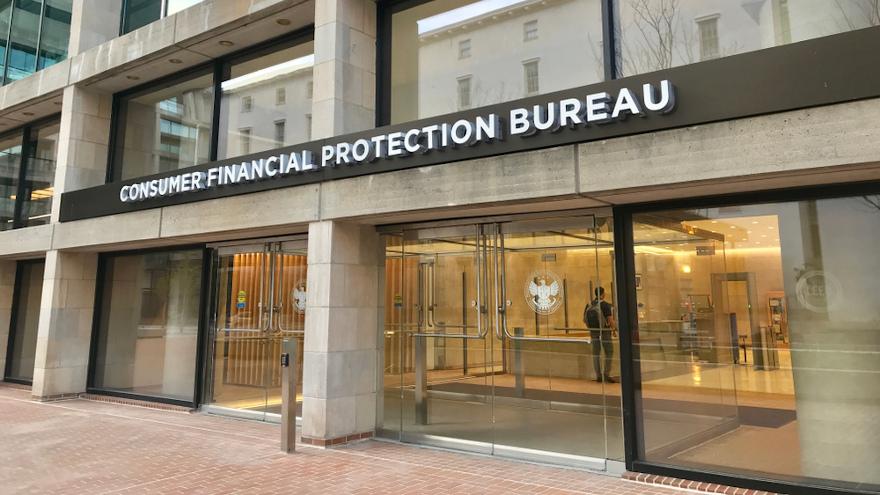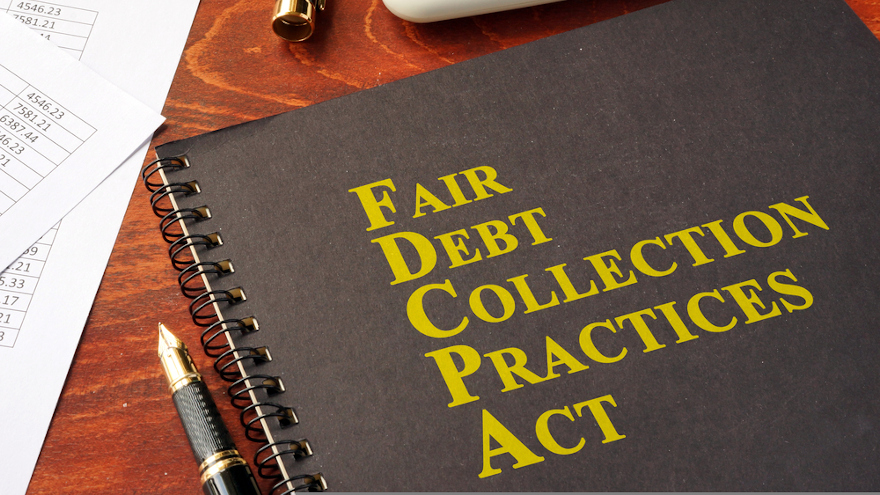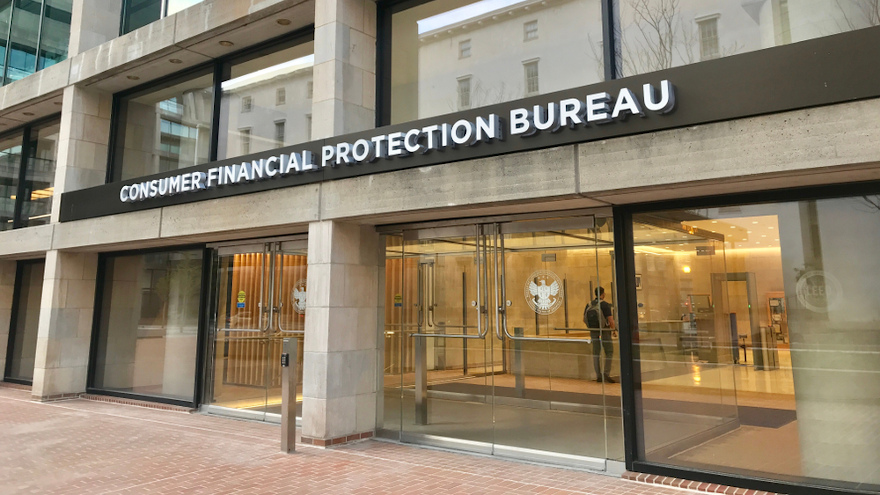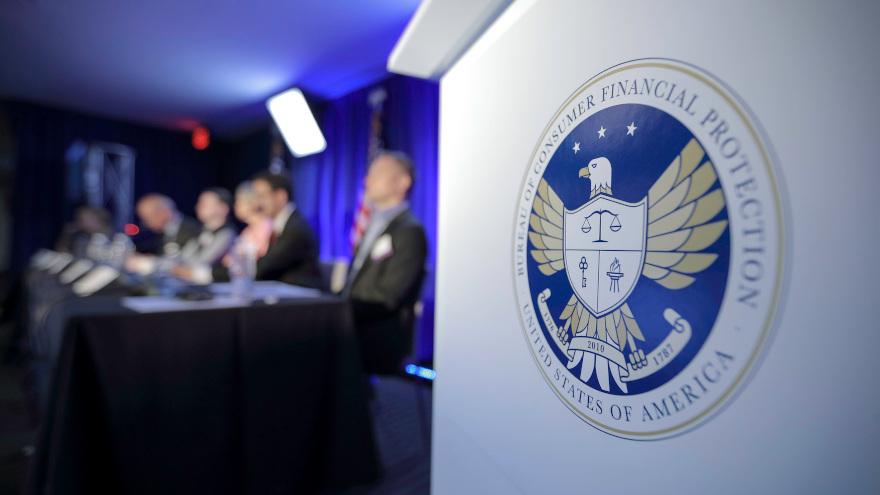In a message sent to SubPrime Auto Finance News on Tuesday, U.S. Equity Advantage (USEA) and chief executive officer Robert Steenbergh explained how they ended up entering into a consent order with the Consumer Financial Protection Bureau when the payment processing firm reached “a bridge too far” during its dialogue with the regulator.
To recap, the bureau distributed a news release on Friday, saying it issued a consent order against USEA and Steenbergh. The CFPB said it found that the company’s disclosures and advertisements of its auto-finance payment program contained misleading statements in violation of the Consumer Financial Protection Act of 2010’s prohibition against deceptive acts or practices.
USEA responded by stating Friday’s announcement ended “a four-year, far-reaching and exhaustive examination requiring hundreds of man hours and thousands of pages of documents.” The company insisted the settlement makes clear that USEA does not admit to any of the CFPB’s allegations.
In fact, Steenbergh went so far as to call most of the bureau’s allegations “factually inaccurate and patently false.”
At the end of this four-year investigation, Steenbergh said the CFPB could not produce a single customer complaint nor any examples of actual consumer harm. Instead, he said the CFPB took issue with language that occurred in two lines of a “long-ago” revised and frequently unused supplemental disclosure tool, as well as one phrase in a discontinued generic advertisement.
“That was it. That’s all the CFPB could allege after four years,” Steenbergh said. “And, in making these ‘findings,’ the CFPB ignored evidence showing that 95% or more of our customers could not have possibly even seen or potentially relied on the disclosures at issue — which we changed two-and-a-half years ago.”
Nonetheless, the consent order imposes a judgment against USEA requiring it to pay $9.3 million in consumer redress and contains requirements to prevent future violations.
While the CFPB does not “approve” businesses in the process of reaching this settlement, USEA said the CFPB did not take issue with the company’s biweekly payment services, including aligning payments to paychecks, payment processing, enrollment process and/or amortization calculations.
USEA also said the bureau acknowledged the value of all its products and services, including credit monitoring, credit scoring, vehicle valuation and recall alerts.
Furthermore, USEA asserted that the CFPB found no other potential law violations, including anything related to Regulation E.
Steenbergh then acknowledged what resulted in USEA entering into the consent order despite these assertions.
“While we were willing to stand up to the CFPB, when its attorneys threatened to subpoena F&I managers, it became a bridge too far,” Steenbergh said. “Despite never stepping foot in a dealership and failing to identify a single customer complaint about our service, the CFPB claims it ‘knows what goes on’ in dealerships. That’s their idea of evidence. It was ridiculous, but I wasn’t about to let them continue their modern-day inquisition and drag anyone else into it. So, we settled.
“While we are not thrilled with having to pay $900,000 to resolve this situation, it’s a small fraction of what the CFPB originally demanded,” he continued.
The CFPB said the ordered redress amount is suspended upon payment of $900,000 and a $1 civil money penalty to the bureau.
While perhaps weary from the clash with the CFPB, Steenbergh described how USEA plans to proceed.
“The good news is that this settlement will not impact our business at all. It will do nothing to impact the best-in-class service and value our 60+ team members have been providing to our business partners and customers for over 17 years,” Steenbergh continued.
“We are happy to put this injustice behind us, and we look forward to continuing our rapid growth and nationwide expansion. And, most importantly, I would personally like to thank all of our loyal dealer, banking and agent partners who told us when we informed them about this forthcoming settlement, that it didn’t change their perception of USEA in the slightest,” he went on to say.
For the second time this month, the Consumer Financial Protection Bureau finalized a consent order with a firm involved with auto-finance payments.
And similar to the one the CFPB reached at the beginning of November, bureau officials see the possibility of U.S. Equity Advantage (USEA) not possessing financial resources to pay the $9.3 million included in the order.
According to a news release distributed on Friday, the bureau issued a consent order against USEA and its owner, Robert Steenbergh. The CFPB said it found that the company’s disclosures and advertisements of its auto-finance payment program contained misleading statements in violation of the Consumer Financial Protection Act of 2010’s prohibition against deceptive acts or practices.
Steenbergh is the founder, sole owner and chief executive officer of USEA, a non-bank firm located in Orlando, Fla. The consent order imposes a judgment against the company requiring it to pay $9.3 million in consumer redress and contains requirements to prevent future violations.
The bureau recapped that USEA and Steenbergh operate an auto-finance payment program called AutoPayPlus, which charges fees to deduct payments from consumers’ bank accounts every two weeks and then forwards those payments every month to the consumers’ finance companies. The bureau found that USEA and Steenbergh misrepresented the amount consumers would save when disclosing the program’s benefits by not including a $399 enrollment fee in the calculations presented to consumers.
“USEA and Steenbergh created the misleading impression that consumers would save money using its product, when in fact, because of the enrollment fee, the program’s costs ordinarily exceeded any savings,” officials said.
The bureau said it also found that USEA and Steenbergh stated in advertising that “they have helped hundreds of thousands of customers save $29 million or more in interest by participating in AutoPayPlus when they had no basis for making this claim, and when the program had, in fact, not saved consumers that amount.”
The CFPB went on to mention it discovered that more than 100,000 consumers were subject to USEA’s and Steenbergh’s deceptive practices and that consumers should receive $9,300,000 in redress for fees they paid.
Officials explained the ordered redress amount is suspended upon payment of $900,000 and a $1 civil money penalty to the bureau. The suspension of the full payment for redress, as well as the $1 civil penalty, is based on USEA’s and Steenbergh’s demonstrated inability to pay more based on sworn financial statements.
The bureau pointed out consumers harmed by USEA and Steenbergh may be eligible for additional relief from the bureau’s Civil Penalty Fund.
“If victims cannot be located or it is otherwise not practicable to pay victims, the bureau will keep the money in the fund for victims in future cases rather than the money being sent to the Treasury,” officials said.
The CFPB added that the consent order prohibits USEA and Steenbergh from making any misrepresentations about its payment programs. It also requires them to account for the total costs for its payment programs, as well as the net savings or costs after deducting any fees, whenever they make claims about savings or financial benefits.
The complete consent order can be downloaded here.
This action follows a similar path the CFPB took with SMART Payment Plan (SMART) in an order involving $7.5 million.
A firm that was supposed to pull funds from contract holders’ bank accounts and deliver the money to auto-finance companies entered into a consent order with the Consumer Financial Protection Bureau this week.
And in a twist, the penalties levied by the CFPB against the company might not be completely delivered.
Here’s what has happened, according to a news release from the bureau.
The CFPB issued a consent order against SMART Payment Plan (SMART), finding that the company’s disclosures of its payment program contained misleading statements in violation of the Consumer Financial Protection Act of 2010’s prohibition against deceptive acts or practices. SMART is a limited liability company with its principal place of business in Austin, Texas.
The bureau recapped that SMART operated a payment program for auto financing called the SMART Plan that deducted payments from consumers’ bank accounts every two weeks and then forwarded these payments every month to the consumers’ contract holders.
The consent order imposes a judgment against SMART requiring it to pay $7.5 million in consumer redress and requirements to prevent future violations.
Bureau officials explained SMART provided consumers individualized “benefits summaries” that purported to state a specific amount of interest savings or other money savings consumers would get by enrolling in the SMART Plan. But SMART’s fees would ordinarily exceed the savings, according to the regulator.
“SMART’s disclosures thus created the misleading impression that consumers would save money using its product,” the CFPB said.
Now to the complicated part involving penalties.
The bureau said its ordered redress amount is suspended upon SMART’s payment of $1.5 million by Dec. 31 and a $1 civil money penalty to the regulator.
Officials indicated the suspension of the full payment for redress, as well as the $1 civil penalty, is based on SMART’s demonstrated inability to pay more based on sworn financial statements.
The CFPB added harmed consumers may be eligible for additional relief from the bureau’s civil penalty fund.
“The consent order prohibits SMART from making any misrepresentations about its payment programs,” officials reiterated.
“It also requires SMART to account for the total costs for its payment programs, as well as the net savings or costs after deducting any fees, whenever SMART makes claims about savings or financial benefits,” they went on to say.
The complete consent order can be downloaded here.
The American Recovery Association (ARA) recently distributed a message to the industry, reiterating its positions regarding personal property in repossessed vehicles. The move was triggered by the $5 million settlement Nissan’s captive finance company reached with the Consumer Financial Protection Bureau after the regulator said it found several violations by Nissan Motor Acceptance Corp. in connection with vehicle repossessions.
ARA focused its attention on one specific piece of the consent order, which states:
“The practice of withholding consumers’ personal property unless consumers paid an upfront fee to recover it caused or was likely to cause substantial injury that is not reasonably avoidable or outweighed by the countervailing benefits to consumers or competition.”
The association insisted that many states have recognized that a fee associated with handling personal property is a legitimate expense and a reasonable fee can be charged to the consumer.
That assertion led ARA to reiterate three points it also highlighted in a white paper compiled in August. The ARA said:
1. Nothing in this order changes what a collateral recovery agency is permitted to charge. The latest ARA White Paper on personal property demonstrates the validity for this fee and establishes the handling of personal property as a separate and distinct service not included in a repossession fee.
2. It states lenders must prohibit their repossessors from charging personal property fees directly to consumers and demanding fees as a condition of returning personal property. Nothing in the consent order prohibits the repossessor from collecting those fees by way of contractual agreement directly with the lender.
3. The CFPB, in several points in their Supervisory Highlights Oct 2016, suggest that the fees associated with personal property handling can be billed to the creditor.
“The legitimacy and permissibility of this fee has been established for 30 years,” ARA added in its latest message. “The handling of personal property is very time consuming. Occasionally, it is also unsafe.”
ARA recommended that finance companies collaborate with the legal counsel on how to proceed with this portion of the repossession process.
The Consumer Financial Protection Bureau offered collections and compliance professionals some light reading just before the weekend. It’s mere a 653-page document to update a regulation first passed four decades ago that has taken regulatory officials seven years to get to this juncture.
On Friday, the bureau issued its final rule to restate and clarify prohibitions on harassment and abuse, false or misleading representations, and unfair practices by debt collectors when collecting consumer debt. The regulator explained the rule focuses on debt collection communications and gives consumers more control over how often and through what means debt collectors can communicate with them regarding their debts.
The CFPB added that the rule also clarifies how the protections of the Fair Debt Collection Practices Act (FDCPA), which was passed in 1977, apply to newer communication technologies, such as email and text messages.
The entire new rule can be downloaded on this website.
Initial industry reaction to this rule seemed positive.
“AFSA and its members appreciate the time and consideration put forward by the CFPB in developing its debt collection rules under the Fair Debt Collection Practices Act (FDCPA),” American Financial Services Association senior vice president Celia Winslow said in a statement.
“Key to this rulemaking was ensuring that creditors would have the ability to contact their customers and work with them to remain current or to assist them if they faced hardships,” Winslow continued. “We have seen how crucial this flexibility can be over the past seven months, and focusing on third-party debt collectors in this rulemaking both protects consumers and means efficient, expeditious resolution by creditors, which in turn also benefits their customers.”
In its own news release, the CFPB pointed out that the rule is the result of a deliberative, thoughtful process spanning more than seven years and reflects engagement with consumer advocates, debt collectors, and other stakeholders.
Further, in developing the final rule, the bureau said it considered the more than 14,000 comments received during the public comment and rulemaking process.
As a result of this feedback, the regulator noted that the rule establishes a presumption on the number of calls debt collectors may place to reach consumers on a weekly basis. A debt collector is presumed to violate federal law if the debt collector places telephone calls to a particular person in connection with the collection of a particular debt more than seven times within seven consecutive days or within seven consecutive days of having had a telephone conversation about the debt, according to the new rule.
The CFPB said that the rule also clarifies how consumers may set limits on debt collection communications to reflect their preferences and the limits on communicating with third parties about a consumer’s debt. The rule requires debt collectors who communicate electronically to offer the consumer a reasonable and simple method to opt out of such communications at a specific email address or telephone number.
The rule also provides that consumers may, if the debt collector communicates through a medium of electronic communications, use that medium of electronic communications to place a cease communication request or notify the debt collector that they refuse to pay the debt.
The bureau went on to mention the rule further clarifies that the FDCPA’s general prohibition on harassing, oppressive or abusive conduct applies to telephone calls as well as other communication media, such as email and text messages, and provides examples demonstrating how the prohibition restricts emails and text messages. It also generally restates the FDCPA’s prohibitions regarding false, deceptive, or misleading representations or means and unfair or unconscionable means, according to the CFPB.
Officials closed by addressing one of the topics on which the bureau acknowledged that it received a great deal of feedback.
The bureau said it is not finalizing the proposed safe harbor for debt collectors against claims that an attorney falsely represented the attorney’s involvement in the preparation of a litigation submission. Officials noted that provision was proposed to bring greater clarity to this issue but, after receiving questions and comments from many stakeholders concerning the proposal, the bureau said it has decided not to finalize that provision.
“With the vast changes in communications since the FDCPA was passed more than four decades ago, it is important to provide clear rules of the road,” CFPB director Kathleen Kraninger said in the news release.
“Our debt collection rulemaking provides limits on debt collectors and provides clear rights for consumers. With this modernized debt collection rule, consumers will have greater control when communicating with debt collectors.”
The CFPB added the final rule also contains provisions on disputes, and record retention, among other topics. The bureau said it intends to issue a second debt collection final rule focused on consumer disclosures in December.
Ignite Consulting Partners chief legal and compliance officer Steve Levine explained two of the most important potential ramifications stemming from the Consumer Financial Protection Bureau’s settlement with Nissan’s captive finance company.
To recap, the bureau said it found several violations by Nissan Motor Acceptance Corp. in connection with vehicle repossessions, leading to a settlement totaling $5 million.
In a message to clients as well as SubPrime Auto Finance News, Levine said, “Two big takeaways are be sure your state allows a fee to be charged by either the creditor or its agent for the return of personal property left in a vehicle. Many states prohibit this.
“Also, be transparent about payment fees being charged and communicating the availability of payment methods with lower or no fee,” he added.
Levine also acknowledged more potential compliance pitfalls are mentioned in the CFPB’s consent decree with Nissan’s captive than these two issues with repossessions. He welcomed dealerships and finance companies to engage in a more in-depth conversation with the firm by sending a message to [email protected].
“It’s worth noting that this is the second CFPB action taken against an auto finance company in a month, with a September action being announced against Lobel Financial on its loss damage waiver product. Rumors of the CFPB’s demise have been greatly exaggerated,” Levine said.
And as a side note, Levine mentioned activities on social media, too.
“Be aware that we’ve seen a few recent examples of creditors communicating with purported customers via Facebook only to find that the customer's account was a ‘dummy’ one,” he said. “Give careful consideration to your social media policies and the controls you have in place.”
For more details, go to ignitecp.com.
The Consumer Financial Protection Bureau issued a consent order in the auto-finance industry for the second time in less than a month; this time with Nissan’s captive.
According to a news release distributed on Tuesday, the bureau said it found several violations by Nissan Motor Acceptance Corp. (NMAC) in connection with vehicle repossessions, including:
— Wrongfully repossessed vehicles
— Kept personal property in consumers’ repossessed vehicles until consumers paid a storage fee
— Deprived consumers paying by phone of the ability to select payment options with significantly lower fees
— In its contract extension agreements, made a deceptive statement that appeared to limit consumers’ bankruptcy protections.
Officials said these actions violated the Consumer Financial Protection Act’s (CFPA) prohibition against unfair and deceptive acts and practices.
The CFPB explained the consent order requires NMAC to provide up to $1 million of cash redress to consumers subject to a wrongful repossession, credit any outstanding account charges associated with a wrongful repossession, and to pay a civil money penalty of $4 million.
The order also imposes certain requirements to prevent future violations and remediate consumers whose vehicles are wrongfully repossessed going forward.
When contacted by SubPrime Auto Finance News, NMAC offered this statement about the matter:
“Nissan Motor Acceptance Corporation (NMAC) has reached a voluntary agreement with the Consumer Financial Protection Bureau (CFPB) regarding claims of unfair and deceptive practices. NMAC denies any wrongdoing but has agreed to settle with the CFPB in the best interest for all parties. While NMAC disagrees with the CFPB’s claims, we take their assertions seriously and share their commitment to fair practices for all our customers. The actions NMAC will voluntarily take under this agreement are intended to further that commitment and to provide appropriate relief for affected customers.”
The bureau went into more detail about its findings that led to this consent order that arrived on the heels of an agreement with Lobel Financial. The order also is the largest since the CFPB’s consent order totaling nearly $12 million with Santander Consumer USA in November 2018.
The CFPB said it specifically found that from 2013 through September of 2019, NMAC repossessed hundreds of consumers’ vehicles despite the consumer having made payments or otherwise taken actions that should have prevented the repossession.
The bureau said it also found that from at least early 2014 through late August 2017, NMAC’s repossession agents with the captive’s knowledge, demanded that consumers pay a separate, upfront storage fee for personal property contained in repossessed vehicles. These agents refused to return consumers’ personal property until the consumers paid the fee, according to the regulator.
The CFPB went on to say that it further discovered that from 2012 through part of 2017, Nissan deprived consumers paying by phone of the ability to select pay-by-phone options with significantly lower fees. Officials said numerous consumers paid $7.95 more to make a phone payment than they would have if they had known of and selected a different payment option.
The bureau also found that when NMAC agreed to modify a consumer’s installment payments for tens of thousands of accounts that NMAC used agreements or written confirmations that included language that created the net misimpression that consumers could not file for bankruptcy.
The CPFB indicated that the consent order requires NMAC to refund fees paid by consumers, credit any outstanding charges stemming from the repossession, and pay consumers redress for each day the captive wrongfully held the vehicle.
NMAC an must also pay a civil money penalty of $4 million.
The consent order also requires NMAC to:
— Prohibit its repossession agents from charging personal property fees to consumers directly and from demanding fees as a condition of returning personal property
— Correct its repossession practices and conduct a quarterly review to discover and remediate any future wrongful repossessions
— Clearly disclose to consumers the fee for each method of making a payment by phone before consumers are asked which method they wish to use
— Stop using any language that creates the impression that consumers have surrendered their bankruptcy rights
The entire consent order can be found on this website.
Finance companies that reach consent orders with the Consumer Financial Protection Bureau received a bit more clarity about them this week.
The bureau issued a policy statement on applications for early termination of consent orders that outlines process for entities subject to a consent order and the standards that the bureau intends to use when evaluating applications.
In order for a consent order to be terminated early, the CFPB explained that an entity should have:
— Demonstrated that it meets certain threshold eligibility criteria
— Fully complied with the terms of the consent order
— A satisfactory compliance management system in applicable areas
“These conditions are designed to minimize the risk of new violations of law by the company and to protect consumers,” the regulator said in a news release.
Officials noted that an entity’s application for early termination should be submitted to the bureau point of contact specified in the consent order.
“In general, an application should demonstrate that the entity has satisfied all of the conditions for granting early termination described in the policy statement,” the CFPB said.
The agency went on to mention that bureau staff will review applications and make recommendations to the director about whether to terminate a consent order.
Under the policy, the sole authority to terminate a consent order remains with the bureau’s director and the termination decision is at their discretion.
The CFPB recapped that consent orders, which generally have a five-year term, describe the bureau’s findings and conclusions concerning the identified violations by an entity and generally impose injunctive relief, monetary relief, penalties and reporting, recordkeeping and cooperation requirements.
“They play an essential role in the bureau’s enforcement work by providing relief for consumers and deterring future violations,” the bureau added.
To read the entire policy statement regarding consent orders, go this website.
Last week, Lobel Financial Corp. finalized a settlement with the Consumer Financial Protection Bureau totaling more than $1.4 million.
According to a news release, the bureau found that Lobel engaged in unfair practices with respect to the finance company’s loss damage waiver (LDW) product in violation of the Consumer Financial Protection Act (CFPA).
When a contract holder has insufficient insurance, rather than force-placing collateral-protection insurance, the CFPB said Lobel places the LDW product. The bureau said this product is not itself insurance on accounts and charges a monthly premium of approximately $70 for the LDW coverage.
Officials explained the LDW product provides that Lobel will pay for the cost of covered repairs and, in the event of a total vehicle loss, cancel the contract holder’s debt.
The CFPB said it found that Lobel continued to bill certain consumers for LDW coverage but then failed to provide it, and assessed fees from consumers that they were not obligated to pay.
The order requires Lobel to pay $1,345,224 in consumer redress to approximately 4,000 harmed consumers and a $100,000 civil money penalty.
The order also prohibits Lobel from failing to provide consumers with LDW coverage or similar products or services for which it has charged consumers or from charging consumers fees that are not authorized by its LDW contracts.
The regulator said Lobel’s LDW agreement — which all Lobel contract holders must sign — specifies that if at any time the contract holder fails to maintain car insurance subject to certain specifications, Lobel will add LDW coverage to the consumer’s account and impose a monthly charge.
If a contract holder becomes 10 or more days delinquent on a contract with LDW coverage, Lobel may stop the LDW coverage, according to the CFPB.
The bureau went on to say that its investigation found that since 2012 Lobel charged customers LDW premiums after they had become 10 days delinquent but did not provide them with LDW coverage.
“When these customers needed repairs or experienced total vehicle losses, Lobel denied their claims,” the CFPB said. “This practice was unfair under the CFPA because consumers were charged for a service that they did not receive.”
The bureau also found that Lobel charged some customers LDW-related fees that the finance company had not disclosed in its LDW contract.
“This practice was also unfair under the CFPA,” the CFPB said.
The entire consent order can be viewed here.
This week, Consumer Financial Protection Bureau director Kathleen Kraninger announced the appointment of members to the Consumer Advisory Board (CAB), Community Bank Advisory Council (CBAC), Credit Union Advisory Council (CUAC) and Academic Research Council (ARC).
Officials said these experts advise bureau leadership on a broad range of consumer financial issues and emerging market trends.
Last spring, the CFPB recapped that Kraninger announced a series of enhancements to the bureau’s advisory committee charters, including:
— Expanding the focus of the meetings to cover broad policy matters
— Increasing the frequency of in-person meetings from two times a year to three times a year for the CAB, CBAC and CUAC
— Elevating the ARC to a Director-level advisory committee and increasing its meeting frequency
— Increasing term lengths from one year to two years, among other enhancements.
Officials reiterated the CAB is mandated by the Dodd-Frank Wall Street Reform and Consumer Protection Act to advise and consult with the bureau’s Director on a variety of consumer financial issues.
The bureau also created three additional discretionary councils: the CBAC, CUAC and ARC.
The CBAC and CUAC advise and consult with the bureau on consumer financial issues related to community banks and credit unions. The ARC advises the bureau on its strategic research planning process and research agenda and provides feedback on research methodologies, data collection strategies and methods of analysis, including methodologies and strategies for quantifying the costs and benefits of regulatory actions.
The following members will serve on each of their respective committees:
Consumer Advisory Board (CAB)
Chair of the CAB: Eric Kaplan, director of the housing finance program, Milken Institute, Washington, D.C.
Joaquin Altoro, CEO, Wisconsin Housing & Economic Development Authority, Madison, Wisc.
Nikitra Bailey, executive vice president, Center for Responsible Lending, Durham, N.C.
Lorray Brown, attorney, co-director, Michigan Poverty Law Program, Ypsilanti, Mich.
Nadine Cohen, managing attorney, Greater Boston Legal Services, Boston
David Ehrich, executive director, AIR – Alliance for Innovation Regulation, Washington, D.C.
Mae Watson Grote, founder and CEO, The Financial Clinic, Brooklyn, N.Y.
Tim Lampkin, CEO, Higher Purpose Co., Clarksdale, Miss.
Leigh Phillips, president and CEO, SaverLife, San Francisco
Jean Setzfand, senior vice president, AARP, Washington, D.C.
Rebecca Steele, president and CEO, National Foundation for Credit Counseling, Washington, D.C.
Tim Welsh, vice chairman of consumer and business banking, U.S. Bank, Minneapolis
Community Bank Advisory Council (CBAC)
Chair of the CBAC: Valerie Quiett, senior vice president and chief legal officer, Mechanics and Farmers (M&F) Bank, Durham, N.C.
John Buhrmaster, president and CEO, First National Bank of Scotia, Scotia, N.Y.
Patrick Ervin, executive vice president, Independent Bank, Troy, Mich.
Shan Hanes, president and CEO, Heartland Tri-State Bank, Elkhart, Kan.
Ronette Hauser-Jones, mortgage division president, Great Plains Bank, Oklahoma City
Bruce Ocko, senior vice president and director of mortgage and consumer lending, Bangor Savings Bank, Bangor, Maine
Kristina Schaefer, general counsel and chief risk officer, Fishback Financial Corp./First Bank & Trust, Brookings, S.D.
Brad Williamson, CEO and president, Islanders Bank, Friday Harbor, Wash.
Credit Union Advisory Council (CUAC)
Chair of the CUAC: Racardo McLaughlin, vice president of mortgage originations and operations, TwinStar Credit Union, Lacey, Wash.
Monica Davis, senior vice president of risk management, Union Square Credit Union, Wichita Falls, Texas
Michelle Dwyer, president and CEO, Franklin First Federal Credit Union, Greenfield, Mass.
Rick Durante, vice president and director of corporate social responsibility and government affairs, Franklin Mint Federal Credit Union, Chadds Ford, Pa.
Doe Gregersen, vice president and general counsel, Landmark Credit Union, New Berlin, Wisc.
Brian Holst, general counsel, Elevations Credit Union, Boulder, Colo.
Jose Iregui, vice president of loan servicing and collections, Langley Federal Credit Union, Newport News, Va.
Jeremiah Kossen, president and CEO, Town and Country Credit Union, Minot, N.D.
Academic Research Council (ARC)
Chair of the ARC: Joshua Wright, professor, Scalia Law School at George Mason University, Arlington, Va.
Michael Baye, Bert Elwert professor of business economics, Indiana University, Bloomington, Ind.
Vicki Bogan, associate professor, Cornell University, Ithaca, N.Y.
Terri Friedline, associate professor, University of Michigan, Ann Arbor, Mich.
Tom Miller, professor of finance and Jack R. Lee Chair, Mississippi State University, Starkville, Miss.
Michael Staten, professor and associate dean, University of Arizona, Tucson, Ariz.
Anthony Yezer, professor of economics, George Washington University, Washington, D.C.












